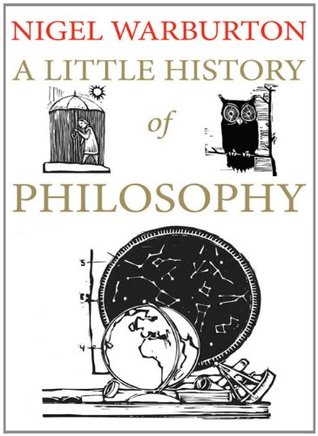More on this book
Community
Kindle Notes & Highlights
Read between
December 15, 2020 - January 2, 2021
For James, to say that ‘God exists’ is a true statement is simply to say that it is somehow good for the believer to believe it.
Nietzsche was a remarkable man. Appointed as a professor at the University of Basel at the very young age of 24, he looked set for a distinguished academic career.
They could turn their lives into the equivalent of works of art by developing their own style of living.
Freud believed that men all have an unconscious wish to kill their father and have sex with their mother. This is the famous Oedipus complex,
‘Metaphysics’ is a word used to describe the study of any reality that lies beyond our senses, the kind of thing that Kant, Schopenhauer and Hegel believed in.
If the sentence was neither true by definition nor empirically verifiable (or falsifiable), then it was, Ayer declared, meaningless.
Ayer reworked Hume's ideas for the twentieth century.
Ayer didn't just attack metaphysics: ethics and religion were both targets for him too.
For example, one of his most challenging conclusions was that moral judgements were literally nonsense.
something that utilitarians such as Jeremy Bentham and John Stuart Mill would have disputed, since they would have measured the resulting happiness.
He meant that we couldn't have meaningful discussion of these issues in terms of values, but he did believe that in most debates about what we should do facts were discussed, and these were empirically verifiable.
He argued that the statement ‘God exists’ was neither true nor false; again, it was, he felt, literally meaningless.
So Ayer was neither a theist (who believes God exists) nor an atheist (who believes that God doesn't exist).
‘Existentialism’ was the name that other people gave to Sartre's philosophy.
In Nazi Germany the trains ran on time – Eichmann and people like him made sure of that.
In 1960, though, members of the Israeli secret police, Mossad, tracked him down to Buenos Aires and captured him.
it was easy for him to persuade himself that what he was doing was right.
He was a product of a system that had somehow prevented him thinking critically about his own actions and the results they produced for real people.
‘the banality of evil’
Eichmann in Jerusalem
Eichmann, like many Nazis during that era, failed to see things from someone else's perspective.
JOHN RAWLS Perhaps you're wealthy.
John Rawls (1921–2002), a modest, quiet Harvard academic, wrote a book that changed the way people thought about these things.
That book was A Theory of Justice (1971) and the result of nearly twenty years of hard thinking.
banker can only get 10,000 times more than the lowest-paid worker if the lowest-paid worker benefits directly and receives an increased amount of money that he or she wouldn't have had if the banker was paid less.
You don't deserve more simply because you are fortunate enough to be a fast runner or a great ball player, or if you are very bright. Being athletically talented or intelligent is the result of winning in the ‘natural lottery’.
Rawls' Theory of Justice was one of the very few works of political philosophy written in that century that are worth mentioning in the same breath as those by Aristotle, Hobbes, Locke, Rousseau, Hume and Kant.
American philosopher John Searle
His number-crunching machines built during the Second World War at Bletchley Park in England cracked the ‘Enigma’ codes used by German submarine commanders.
Turing Test for artificial intelligence but he originally called it the Imitation Game.


